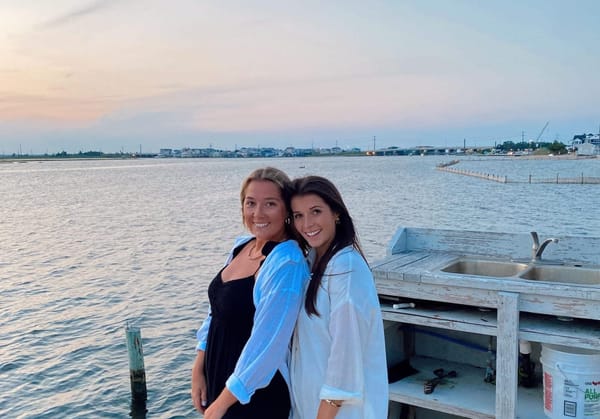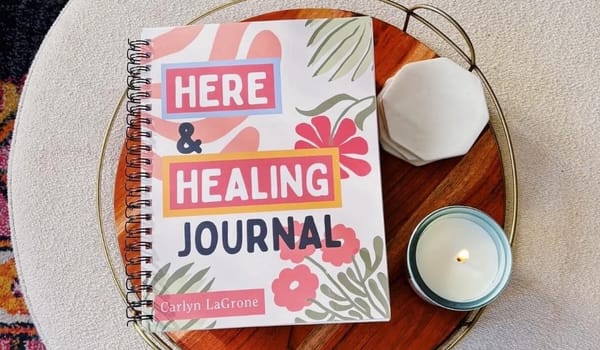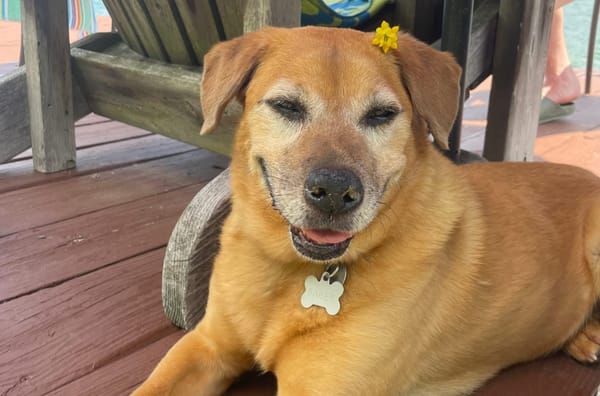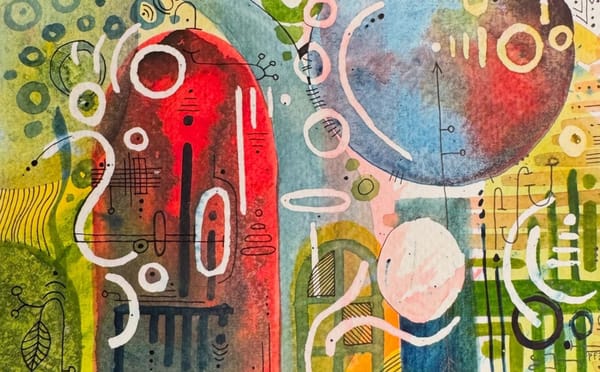Jackie's Story: "I Don't Want to Spend Time Comforting You Over My Diagnosis."
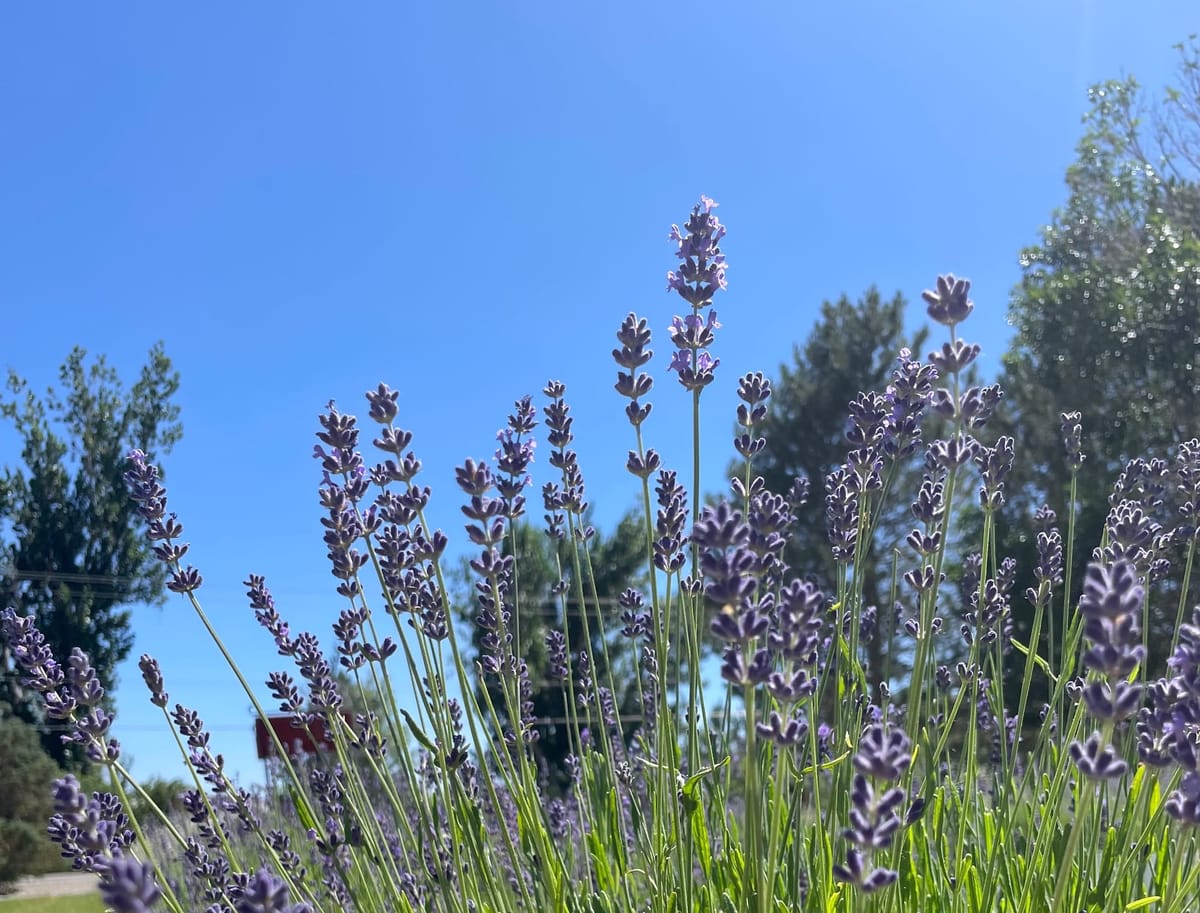
“I don’t want a cleaning person. Being able to clean and scour bathrooms reminds me that I’m okay still.”
You wouldn’t know, just by looking at her, that Jackie is living with stage four cancer. She prefers it that way, because the emotional toll of sharing her diagnosis is exhausting. People start treating her with “kid gloves,” or she ends up comforting them, soothing their sadness.
Her boundary is clear.
“I don’t care about what you think. I care about how I feel,” she says. “So I’m not gonna tell you.”
That perspective came with time.
Jackie’s identity goes well beyond her diagnosis. Her career has centered on education and counseling, always rooted in diversity, equity, and inclusion. She’s led TRIO programs supporting students from disadvantaged backgrounds in pursuing college degrees and directed the Hispanic Cultural Center at UNC. Along the way, she earned her PhD and taught at both the K–12 and college levels—always committed to first-generation, low-income students.
But in the midst of all she was building, a new reality began to take shape. Seven years ago, Jackie found a hard mass near her chest wall.
“I had started to feel like something was wrong. I went under my armpit and close to my chest, and I could feel it. It was massive.”
She stayed calm and called her doctor.
“I knew what it was. I knew it was bad.”
The next day, she was diagnosed with stage three breast cancer. It had already spread to her lymph nodes and bloodstream. After surgery, chemotherapy, and radiation, she began regular infusions to prevent it from spreading to her bones.
At first, she and her husband, Ray, kept her diagnosis private—even from their children, Sam and Paige.
“I told Ray, we’re not telling anybody. I don’t have time to comfort them about what I’m going through. I don’t have time for their tears or their sad looks.”
Once her treatment was under control, she told her kids.
“When I finally told Paige, it was horrible. And Sam’s reaction was even more horrible. It was so catastrophic for him.”
Her kids insisted: no more secrets.
Life moved forward as the scans remained clear.
But in early 2023, Jackie began feeling sick again.
“I was a hot mess. I couldn’t get off the couch,” she says.
Her daughter urged her to see a doctor.
“So I called my primary care doctor and described my symptoms. And there was a long pause on the other end. She said, ‘I need you to go get an MRI today.’”
The day after the scan, her doctor called.
“It was everywhere in my bones. My back was fractured. My long bones had it—my shins, my jaw, my skull.”
She started a new round of intense radiation.
The treatment worked, and her cancer stabilized.
“From 2023 on, it was great. The first couple of scans were like I never had cancer.”
Last fall, her back started hurting. A scan showed the cancer had reached her shin. She had more radiation, and things got better—for a while.
By April, she suspected something was wrong again.
“I figured, I know it’s gonna show up in my shin, and that’s fine, ’cause I feel fine. My blood work’s great—it’s been great.”
But the scan didn’t just show activity in her shin. It revealed cancer in her pelvis, lumbar spine, and one of her ribs.
“And I’m like, ‘What the fuck?’” she says. “It was such a gut punch. Like, why? I don’t even feel it.”
That was the first point in our conversation when her frustration and heartbreak really came through.
She recently started a new treatment and is now waiting to find out if it’s working.
“And that’s where we are now.”
“So that’s why I’ve been a little off, a little scared, a little sad.”
Jackie has never taken time off work, even when cancer was at its worst.
This time around, the diagnosis has taken a bigger toll on her mental health than it ever had before.
She has always been mentally strong—rarely anxious, rarely depressed. Even when she was first diagnosed in 2019, she kept her head up.
Now, most of the emotional weight comes from thinking about her kids.
“I don’t want to leave them so early… Am I gonna see them graduate? Am I gonna see them if and when they decide to get married? Will I be around if they have grandchildren?”
“It’s hard to be future-oriented when you live in three- and six-month increments.”
“I feel like I’m always looking over my shoulder. Yeah, I feel good today, I’m happy, things are okay—but what about in June when I have my next scan? You start to doubt your body, your mind, every pain—is it here? Is it there?”
Recently, she took a new step: attending therapy for the first time.
“It felt good to decide to go.”
What’s often hardest for Jackie is how others treat her.
“I feel like I’m burdening people. That’s why I got therapy… I just don’t want to feel more different than I already feel as a cancer patient.”
“And if I tell somebody, it’s going to be prefaced by—‘Listen. If you’re gonna be with me on this, you have to be Team Jackie. Quite frankly, I don’t have time to comfort you about what I’m going through. I don’t have time for your tears or your sad looks. I know you mean well, but—’ I just took a really hard line.”
Amid all the unsettling reactions to her first diagnosis, one kind response stayed with her.
“This waiter at the pub who we got to know very well… We told him because he saw the hair and everything… He just stepped back and looked at me, and he just gave me a big hug and went, ‘I’m so sorry. If there’s ever anything you think I can do for you.’ … The irony—from a young person, the best comment.”
She doesn’t want pity—she wants presence.
Not sadness, sympathy, or thoughts and prayers, but solidarity. Love, support, and the ability to listen without judgment.
Our instincts know how to nurture that connection.
The student notes she’s kept over the years stay with her—reminders of the impact she’s had on the world around her.
“You changed my life,” they read. “You were my favorite teacher—I’ll never forget you.”
She’s a loyal friend, a devoted mother, and a passionate advocate. While strong and loving, Jackie is also feisty—unwilling to give up on anything she believes in.
“And mark my words, if I’m still kicking when I retire—oh hell, I’m going to be totally radical again.”
What she wants most is to watch her kids grow and thrive.
“When I go to the darkest places, I have to think of my kids… I’ve never felt like I’m giving up, I’m defeated, or this is gonna get me.”
She often reflects and thinks:
“What have I done? What’s my legacy gonna be? And how did I leave my mark on the world? If I’m gonna leave sooner than I want to, what can I look to that I’m proud of?”
Her legacy, she says, is clear.
“I did a lot of really good work in my career. But I’m most proud of my kids… They’re living life to the fullest. They’re kind, communicative, intelligent, and that’s what I’m most proud of. I have two healthy kids who are gonna go out and continue that cycle… If I’ve done nothing else, that’s my legacy.”
“Cancer is just one chapter in a long life of wonderful things,” she says.

